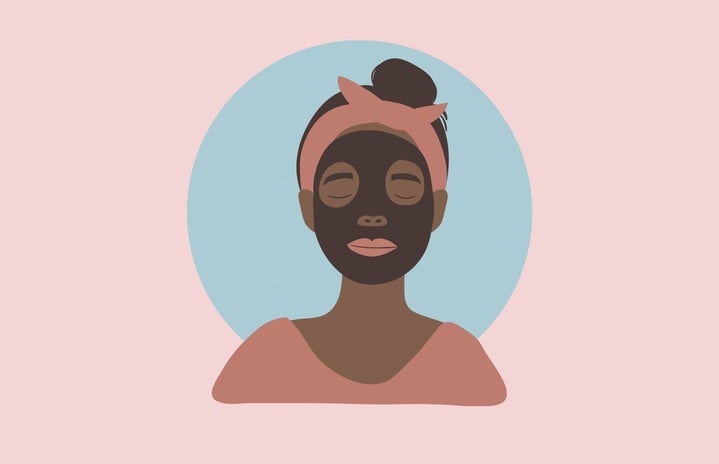During one of my staff meetings for my on-campus job, we discussed self-care. I had previously thought that I did a pretty good job of taking care of myself; I go to the gym regularly, eat well, get enough sleep, and take care of my personal hygiene. But during the staff meeting, we discussed that there is more than just one type of self-care, and I realized that maybe I’m not doing the best job practicing self-care as I had originally thought.
What Is Self-Care?
When self-care first started to become a thing, people started off by recognizing self-care as a “treat” or reward for doing something great. But, that’s not what true self-care is about. Self-care should be a routine of regular activities and practices that help cultivate a more nurtured self-awareness and growth.
Self-care is such a beautiful thing if you think about it. The meaning and purpose of self-care in of itself is a reflection of who we are as humans: multidimensional. When most people think about self-care, they often jump to thinking about physical areas they can tend to. When creating your routine, something that’s really important to remember is that self-care has many aspects to it that aren’t just physical.
The 5 Dimensions
There are 5 types of self-care: Physical self-care, psychological/emotional self-care, social self-care, spiritual self-care, and professional self-care. I may excel in tending to my physical self-care, but after much discussion of the topic during my meeting, it was revealed that I fall short in the other areas.
1. Physical Self-Care
Physical self-care is the most common form of self-care that people hone in on. From exercising to treating yourself, there is really an endless list of practices and activities that can help your overall physical health. Examples of this include: eating healthier, getting regular exercise, wearing clothes you like, or taking time out of your day to get your hair or makeup done. While many of these activities might be considered more “superficial,” I think they are essential to maintaining lower levels of stress. So go ahead and go to your favorite beauty store and splurge on one of those bath bombs for a night in the tub — you deserve it!
2. Emotional/Psychological Self-Care
Emotional self-care is often simply the act of allowing yourself to feel your emotions for what they are — with little to no judgment. This can be especially hard at first, but the more you do it the better you can become. Some activities in this area include finding things that make you laugh, complimenting yourself when you look in the mirror, allowing yourself to cry when you feel sad, spending time with loved ones and re-reading/re-watching your favorite book or movie. Psychological self-care is important as well. For instance, it’s okay to say “no” to extra responsibilities in your life. This is a very small but effective way you might be able to reduce stress. Some other activities in this area include engaging your intelligence in other topics (like going to an art exhibit or history museum), be curious for a day, make time for self-reflection and last but not least, pay attention to your inner experience (thoughts, feelings, attitudes and so on). You might be surprised at how even doing one of these activities a couple of times a week can have a positive effect on your mood.
3. Social Self-Care
We are social beings, so it’s important that we focus on developing and deepening relationships with others. Social self-care is all about making sure that your inner social circle is caring, healthy, and supportive. We were made to connect with others and even introverts need to remember to tend to social self-care. Don’t worry, introverts – I know this can be more of an uncomfortable part of self-care for you. I’m an introvert myself. But, introvert or extrovert, we all have an inner social circle that needs some loving. Personally, this one is the hardest for me, but here are some ways you can enhance your social self-care: regularly spend time with those who lift you higher, steer clear of and eliminate any or all toxic relationships, don’t be a people pleaser, take regular social media breaks, call a high school friend, and always take time to laugh.
4. Spiritual Self-Care
Whether you believe in God, Allah, Buddha, or are agnostic or atheist, it’s important to embed spiritual self-care into your daily routine. In this case, spiritual doesn’t refer to religion or believing in a sort of higher being (although it absolutely can if that is what helps you). Instead, in this sense, spiritual self-care is the act of getting in touch with your inner human spirit and soul. Some examples of this include contributing to causes you care about, meditating, spending time in nature, engaging in inspirational videos or literature and highlighting the nonmaterial aspects of life. I realize that some of these suggestions may be vague, but they can be done simply by thought or writing them down in a journal. Essentially, everyone is different and it’s up to you to engage in whatever form of makes you feel best!
5. Professional Self-Care
Engaging in professional self-care is essential for those in the workforce, however, these examples can be easily applicable to those still in school. Some of these examples are very basic, yet often missed throughout a busy work or school day. They include: taking time to chat with coworkers/peers, decorating your workspace to your liking, balancing your workload (literally meaning taking breaks as needed), developing an outside hobby or area of interest and creating a quiet and reserved area to get your work done. Ultimately, when you are able to give your professional life balance, lessened stress may allow you to succeed in other areas of life.
Putting It Into Practice
Now that you’ve learned all about the dimensions of self-care, think about how you might start to incorporate them into your regular routine. Maybe it’s walking with a friend on your lunch break, reading a book before bed, or trying out some positive affirmations in the morning. Just think about what you would find fun or relaxing and make a conscious effort to do more of it!
HCXOXO,
April



